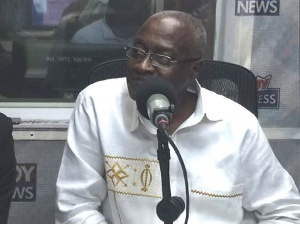 Dr. Richmond Akwasi Atuahene, Banking analyst
Dr. Richmond Akwasi Atuahene, Banking analyst
Financial analyst Dr. Richmond Akwasi Atuahene has debunked the idea that the new Ghana Interbank Forex Market Conduct outlined by the Bank of Ghana (BoG) will stabilise the cedi against the US dollar.
The new directive, among other things, spells out who is eligible to trade in forex in the country, how records should be kept and reported to the Bank of Ghana, and some general rules on the trading of forex.
Dr. Atuahene told the B&FT that the directive is just to regulate conduct and keep accurate data in forex trading, something which has nothing to do with the factors causing rapid depreciation of the cedi against the US dollar.
“We cannot rejoice because of the forex market conduct. It is just to streamline the practice and procedure in forex trading,” he said.
“The reality on the ground regarding cedi-depreciation is supply and demand of the dollar. There is more demand than supply of forex after Christmas. In addition, the US interest rate shot up and so more people are disinvesting their long-term bonds and the Bank of Ghana needs to find dollars to pay.
“And again, now that the banks are publishing their accounts and declaring dividends, they will also demand dollars to pay dividends to their shareholders outside the country. So, these are the factors causing cedi-depreciation and it has nothing to do with the interbank forex conduct,” he said.
The cedi is now trading around GH¢5.50 to a dollar, which represents more than 8 percent depreciation since beginning of the year.
A report by the Bank of Ghana that assesses the impact of external shocks on Ghana’s economy has revealed the cedi’s depreciation against the dollar is expected continue throughout the year, as global events show more external threats ahead.
The report, titled ‘The Effect of External Conditions on the Economy of Ghana’, said an expected slowdown in the US and China economies, policy rate hike in the U.S, strengthening of the US dollar and higher crude oil prices will all impact Ghana’s economy negatively, leading to a “significant deterioration in the exchange rate”.
According to the report, a simultaneous slowdown in the world’s two largest economies will dampen GDP growth in Ghana, induce a significant deterioration in the exchange rate, and induce a marginal increase in the domestic inflation rate as well as a sharp rise in interest rates.
Again, the report adds that a surge in oil price leads to relatively stable GDP growth. Inflation declines initially but picks up marginally after three quarters, while the exchange rate depreciates sharply.
The report further shows that about 40 percent of the variation in Ghana’s real GDP growth is accounted for by external influences. What this essentially means is that any activity— be it positive or negative— that happens with Ghana’s trading-partner countries can affect economic growth by as much as 40 percent.
- Cedi sells at GH¢13.95 to $1, GH¢13.06 on BoG interbank as of April 22
- Ghana, official creditors expect to reach debt restructuring deal by end of May
- Cedi nears GH¢14 to $1 mark, GH¢13.01 on BoG interbank as of April 19
- NPP governments have managed Ghana's debt better than NDC - Danquah Institute
- Cedi sells at GH¢13.80 to $1, GH¢13.01 on BoG interbank
- Read all related articles










